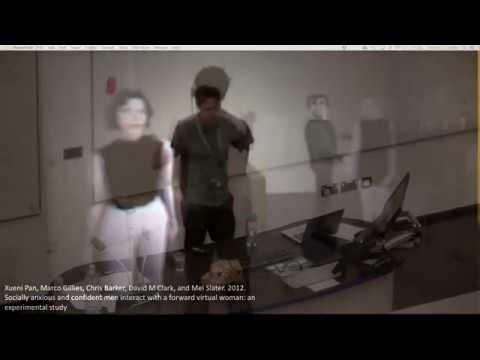Dr Marco Gillies
Academic Director: Online Learning, Goldsmiths, University of London
Biography:
Marco Gillies has over 20 years’ experience of research in Virtual Reality and Virtual Humans. His particular focus is on social interaction. He is also Academic Director: Online Learning in the Teaching and Learning Innovation Centre. As part of that role he is responsible for innovation in the use of technology for learning. Combining those roles he has a strong interest in the use of VR for education, and in particular using VR for training for social interaction. The work presented is in collaboration with Sylvia (Xueni) Pan, Lecturer in Computing at Goldsmiths.
Title: Virtual Reality for Learning Social Skills
Category: Qualitative change in learning
Abstract:
Many professions combine the need for technical or academic knowledge with a need to interact with people. Good social skills are a very important factor and professional social skills may differ from day to day social interaction skills (for example, professional communication, negotiation, breaking bad news). A good example is medical professionals: the scientific knowledge and diagnostic skills required are among the most intellectually challenging of all professions, but doctors and nurses must also interact with patients in some of the most stressful situations of their lives.
Academic knowledge is well covered by a traditional education, but learning social skills is often left to more informal situations. They can only be learned through real practice, but opportunities are rare: either with real patients which is high risk, or with actors, which is high cost. Virtual Reality opens up an opportunity to practice social interactions freely in a safe, low risk environment. The scenarios can be tightly controlled to ensure a consistent experience between students and that appropriate learning outcomes are met. Virtual reality is particularly appropriate for this type of learning because it supports realistic body language: users share a virtual space where thing like eye-contact and gesture work as in the real work, unlike screen based interaction.
This talk will give an overview of 2 decades of work on social interaction in VR with a particular focus on social skills learning. It will describe practical applications in medical and other domains and describe the major technical and learning challenges involve.

